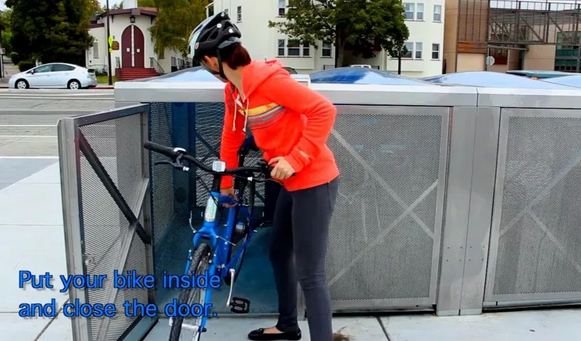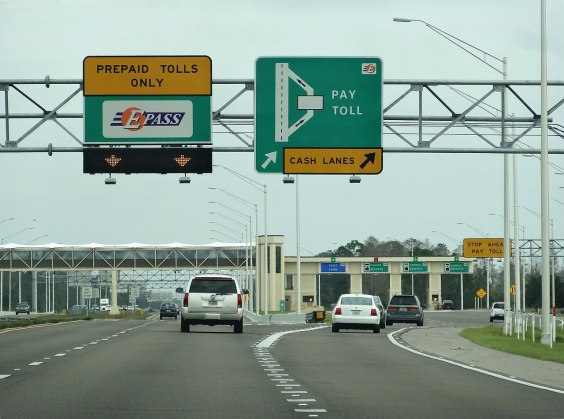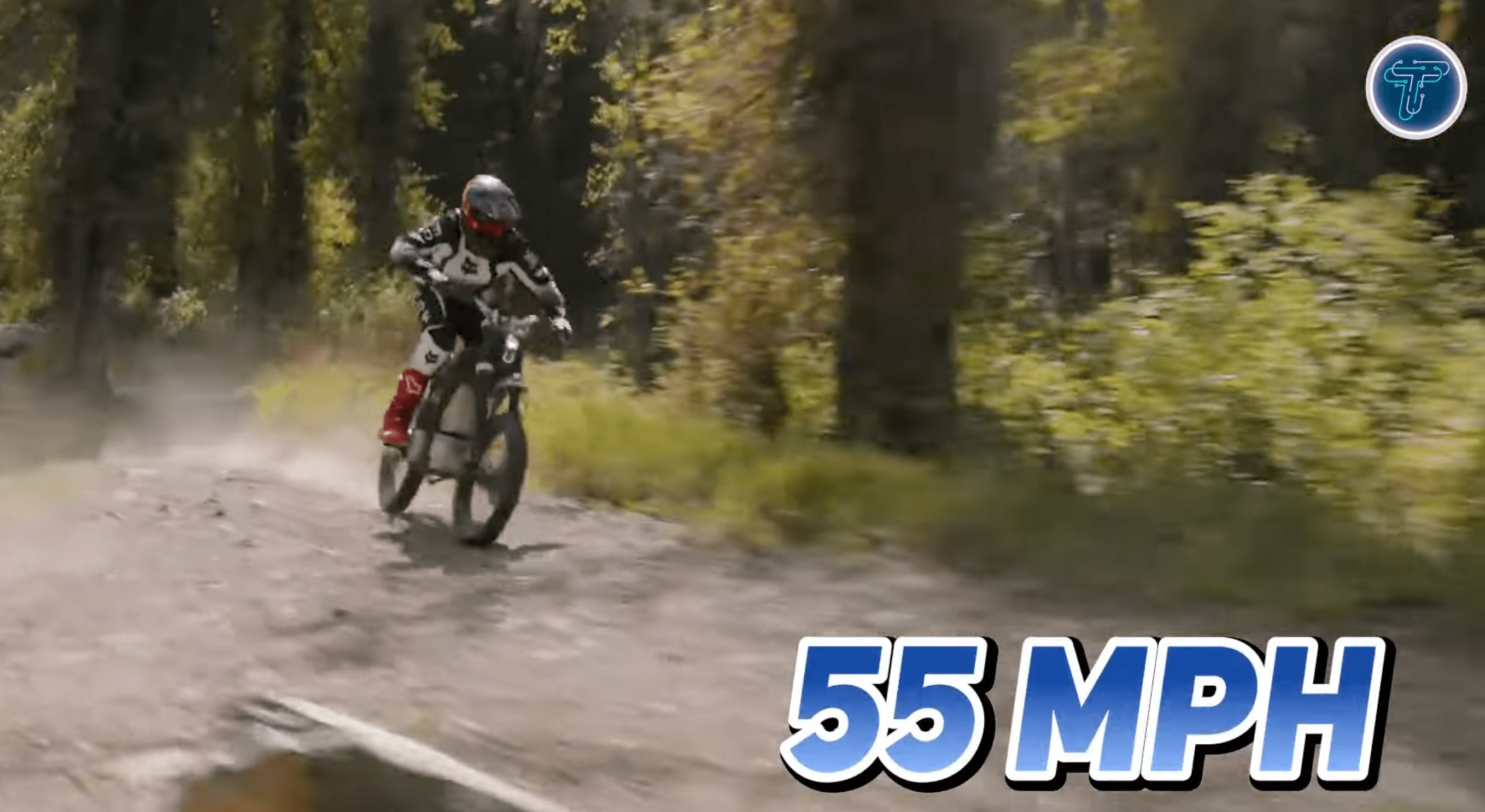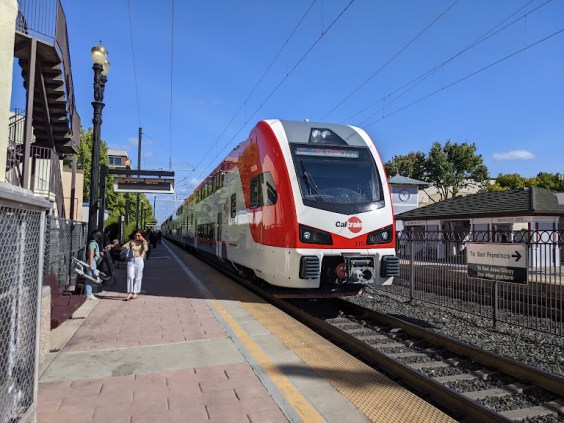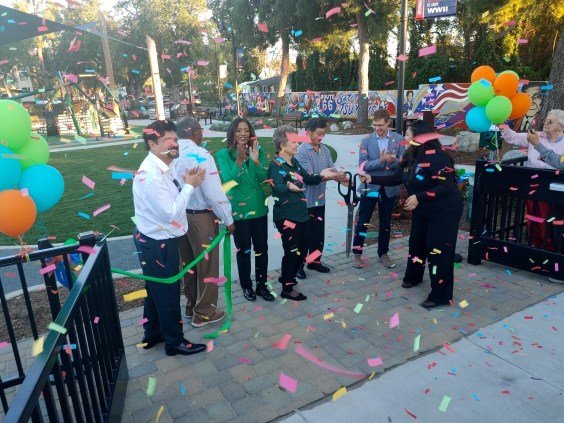Metro has a bike theft problem. Metro staff are looking to re-tool station bike parking systems to deter thefts and to encourage first/last mile bike connections.
Last September the Metro board directed staff to evaluate station bike parking. The motion, by boardmember Mike Bonin, directed staff to inventory existing bike parking, and to recommend how it could be expanded and made more secure. This month Metro staff produced a 12-page report assessing Metro station bike parking.
On the face of it, the report is not very encouraging for bicycle-transit connections, though the devil may be in future details. Despite plenty of demand, Metro plans to remove some unspecified bike lockers and to relocate others. The agency plans to test out new high-tech lockers at only five stations, starting in July. If these are successful, Metro plans to expand the new lockers to five additional stations.
Metro stations currently have three types of bike parking:
- Unsecured U-racks - These are located at most Metro stations. Given that transit users are typically gone for an 8-hour work shift, bikes locked to these are very vulnerable. Many cyclists consider these racks are pretty much an invitation for thieves, hence they are used sparingly, and typically for low-quality bikes.
- Bike Lockers - Metro has bike lockers at 53 different rail and BRT stations. Lockers are currently rented on a monthly basis. See additional locker discussion below.
- Bike Hubs - Metro has three existing bike hubs (El Monte, Hollywood, and Union Station) and two additional hubs opening soon. Culver City opens this Friday. Rosa Parks is under construction. These pay-to-park attended facilities are relatively secure, but are unlikely to be widespread as, compared to lockers, they are relatively expensive to build and maintain (though this cost constraint has not prevented ubiquitous Metro park-and-ride facilities for cars; these station parking lots and structures have cost the agency hundreds of millions of dollars.)
In 2018, Metro riders experienced "a string of break-ins that occurred across the system, mainly during the overnight hour[s]." Per Metro statistics, systemwide in 2018 there were 80 bike thefts reported, with nearly half (38) of the crimes taking place at Metro Expo Line stations.
Metro asserts that nighttime thefts from lockers indicate lockers were used for bike storage and not daily first/last mile connections, though this apparently does not take into account the utility of cyclists keeping a bike secured overnight at the far end of a daily transit+bike commute. Nonetheless, bikes stored in lockers overnight are more vulnerable to theft during times when stations are closed and deserted.
Metro staff retrofitted some existing lockers to make them more secure, but this was unsuccessful in preventing thefts. Metro reports that thieves also stole bikes from bike hubs, though reinforced and upgraded door security reportedly corrected this issue.
Even with bike theft issues, Metro reports that the current bike locker supply is outstripped by demand, with hundreds of people on wait-lists.
In response to the bike thefts, Metro staff recommend "removing or relocating lockers from stations that have lowest rental rates and highest security issues." This is apparently already underway as the report states that "Metro has asked customers to vacate bicycle lockers at several stations due to ongoing security concerns until alternative solutions can be put into place such as placing lockers in closer proximity to the station to reduce bicycle theft and encourage higher utilization."
Based on consultations with its San Francisco Bay Area counterpart BART staff, Metro is looking to eliminate monthly bike locker rentals and shift to automated daily use payment. Metro staff state that this would promote turnover, greatly increase utilization, eliminate long-term bike storage, and reduce security issues. Metro staff recommend pricing similar to BART which charges five cents per hour and accelerates after 10 hours to encourage removal of the bicycle.
The BART system uses a product called BikeLink, which is also currently available on the UCLA campus.
Metro staff also recommend a scaled-down unattended version of bike hubs. These would feature an enclosed fenced-off area with tech-enabled bike racks.
The Metro report does not name the vendor nor the stations, but states that Metro will implement new smartphone-enabled daily rental racks at five stations beginning in July 2019. If these are a success, then Metro will expand them to five additional stations. This would serve ten of the current 53 Metro stations that currently have bike lockers.
L.A. County Bicycle Coalition Executive Director Eli Kaufman welcomes Metro revamping its bike locker program, but warns against "smart phone only enabled locks that would require a bicyclist to have both a cell phone and a credit card to use the proposed system" and urges the agency to ensure that bike lockers are accessible to everyone.
Metro's report indirectly admits that Metro station bike parking has been poorly designed. The report states that the ideal bike locker locations are "in high pedestrian traffic areas such as heavy rail mezzanines" which are closed overnight. Despite this, Metro mostly places bicycle lockers "where space is available, outside the ideal line of sight or in ‘dead space.’" Active San Gabriel Valley Special Programs Director Wesley Reutimann reports that his organization is working to remedy this at new stations on the next extension of the Foothill Gold Line, especially in the college town cities. Metro invests hundreds of millions of dollars in building and maintaining park-and-ride facilities for cars, but Metro staff assert that bike parking is difficult due to "the relatively large footprint of the infrastructure."
Metro's bike parking report is due to received and filed at this Thursday's Metro board meeting.
